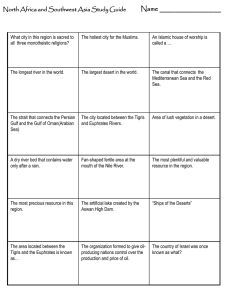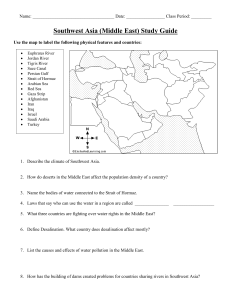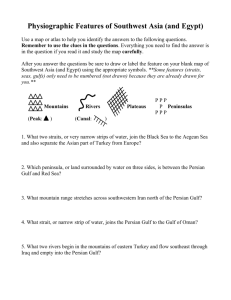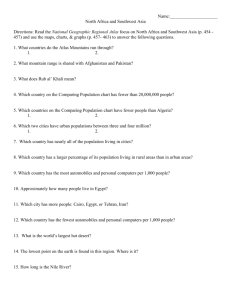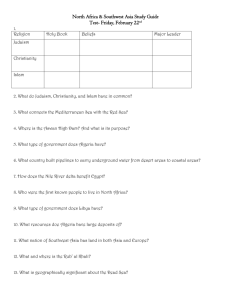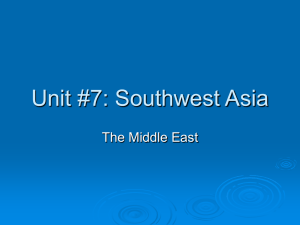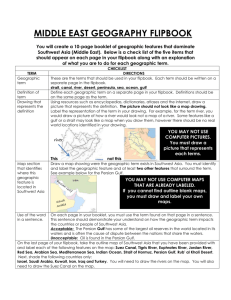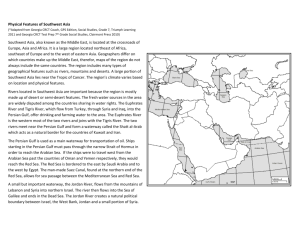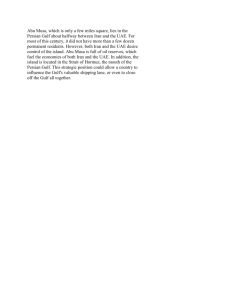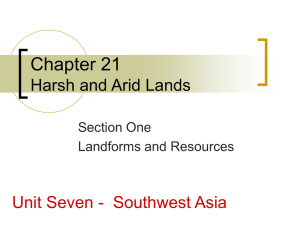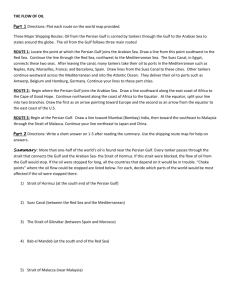Physical geography of SW Asia
advertisement
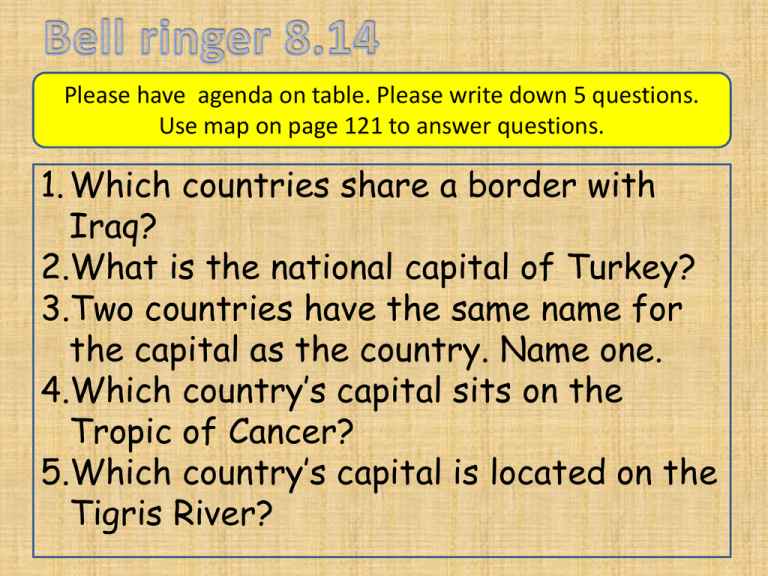
Please have agenda on table. Please write down 5 questions. Use map on page 121 to answer questions. 1. Which countries share a border with Iraq? 2.What is the national capital of Turkey? 3.Two countries have the same name for the capital as the country. Name one. 4.Which country’s capital sits on the Tropic of Cancer? 5.Which country’s capital is located on the Tigris River? How do the physical characteristics of Southwest Asia affect how the population of these countries live? SSG7G5 The student will locate selected features in Southwestern Asia (Middle East). a. Locate on a world and regional politicalphysical map: Euphrates River, Jordan River, Tigris River, Suez Canal, Persian Gulf, Strait of Hormuz, Arabian Sea, Red Sea, and Gaza Strip. b. Locate on a world and regional politicalphysical map the nations of Afghanistan, Iran, Iraq, Israel, Saudi Arabia, and Turkey. SSG7G7 The student will explain the impact of location, climate, physical characteristics, Distribution of natural resources and population distribution on Southwest Asia (Middle East). a. Explain how the distribution of oil has affected the development of Southwest Asia (Middle East). b. Describe how the deserts and rivers of Southwest Asia (Middle East) have affected the population in terms of where people live, the type of work they do, and how they travel. Bell ringer 3 Column Chart – Physical Characteristics 8 Vocab terms you should know Seas and waterways, 131 Mountains, plateaus, and lowlands Rivers, p. 132 Being on the water helps people trade with the rest of the world In the north are _______, Sea of ________ and the ________ Straits. _______ is man made Strait of _______ allows oil tankers to enter and leave Persian Gulf Help people trade with the rest of the world _______ plate movements cause deadly earthquakes In the north are _______, Sea of ________ and the ________ Straits. ______ and _______Mountains in Iran _______ is man made Strait of _______ allows oil tankers to enter and leave Persian Gulf Hindu Kush Mountains in ___________ _______ Pass is a narrow gap in Hindu Kush; used for trade Name Date Class period A facility that turns petroleum into gasoline and other products Type of rock created when layers of material are hardened by weight of materials above Small particles of rich soil An area of fertile soil left by river floods Illegal fishing or hunting An area of fertile soil left by river floods A mineral salt used to make fertilizer Name Date Class period A facility that turns petroleum into gasoline and other products Type of rock created when layers of material are hardened by weight of materials above Small particles of rich soil An area of fertile soil left by river floods Illegal fishing or hunting An area of fertile soil left by river floods A mineral salt used to make fertilizer Please have agenda on table. Please write down 5 questions. Use map on page 122 to answer questions. 1.Which country on the map has the most yellow? What does that mean? 2.How many cities on this map have over 5 million people? 3.What is the population range for the city of Shiraz in Iran? 4.How far is Mashhad from Tehran in miles? 5.Which two Turkish cities lie on line 40 degrees north? How do the physical characteristics of Southwest Asia affect how the population of these countries live? SSG7G5 The student will locate selected features in Southwestern Asia (Middle East). a. Locate on a world and regional politicalphysical map: Euphrates River, Jordan River, Tigris River, Suez Canal, Persian Gulf, Strait of Hormuz, Arabian Sea, Red Sea, and Gaza Strip. b. Locate on a world and regional politicalphysical map the nations of Afghanistan, Iran, Iraq, Israel, Saudi Arabia, and Turkey. SSG7G7 The student will explain the impact of location, climate, physical characteristics, Distribution of natural resources and population distribution on Southwest Asia (Middle East). a. Explain how the distribution of oil has affected the development of Southwest Asia (Middle East). b. Describe how the deserts and rivers of Southwest Asia (Middle East) have affected the population in terms of where people live, the type of work they do, and how they travel. Bell ringer 3 Column Chart – Physical Characteristics 8 Vocab terms you should know Help people trade with the rest of the world Tectonic plate movements cause deadly earthquakes In the north are _______, Sea of ________ and the ________ Straits. Zagros and Elburz Mountains in Iran _______ is man made Hindu Kush Mountains in Afghanistan Strait of _______ allows oil tankers to enter and leave Persian Gulf Khyber Pass is a narrow gap in Hindu Kush; used for trade Early civilizations develop along river valleys Tigris and Euphrates Rivers Flooding was actually good Silt left by floods allowed famers to grow more crops As you get older, how do you think the decrease in oil production in the Middle East might affect the your life here in the United States?
